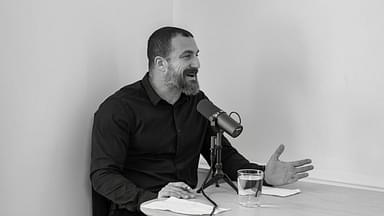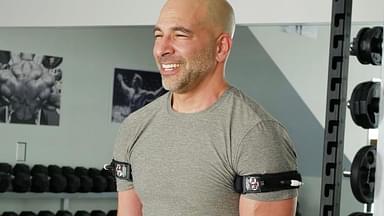Cholesterol has often been a hot topic amidst discussions of various diet fads and nutritional needs. While one might have heard of a colloquial classification of the element into good and bad cholesterol, Canadian physician Dr. Peter Attia voiced his apprehension about it. In a recently resurfaced clip, he addressed the truths and his opinion on cholesterol segregation.
Special forms of protein are responsible for transporting cholesterol within the body and are called lipoproteins. Two kinds of these lipoproteins often get classified as good or bad, depending on what they do with the cholesterol molecules.
High-density lipoprotein, or HDL, absorbs these molecules, carries them to the liver, and ensures that it’s flushed out of the body. It enables a lowered risk of heart disease, hence earning the name of ‘good’ cholesterol. On the other hand, low-density lipoprotein, or LDL, is responsible for increasing the risk of health issues since, in excess, it could cause cholesterol to build up against the walls of blood vessels. Hence, it’s often called ‘bad’ cholesterol.
Here’s where Dr. Attia disagreed with the entire system of classifying cholesterol into ‘good’ or ‘bad’ categories. No matter which kind of protein ends up transporting the molecule, the element, at its core, remains the same.
“The reason that saying there’s good cholesterol or bad cholesterol was nonsensical is because cholesterol is cholesterol is cholesterol. The same molecule of cholesterol inside the HDL is present inside the LDL.”
Essentially, the only thing that differentiates the two kinds of proteins is their function surrounding the molecule. In a previous conversation with neuroscientist Dr. Andrew Huberman, he even mentioned how cholesterol was almost essential for human survival; however, where it lands in the body after its processing determines the reward-to-risk ratio.
“We should really never say good cholesterol or bad cholesterol because it’s highly inaccurate, and it only reflects a lack of understanding of what one is talking about…”
Cholesterol is one of the key elements of the foundation of a human cell, owing to its fluid nature. Discussions about the element could go awfully wrong if taken out of context or shrouded in misinformation. Factoids like these by Dr. Attia help paint a more clear picture of the controversial molecule.
Unlike popular belief, Dr. Peter Attia claimed dietary cholesterol was necessary for the body
As mentioned earlier, Dr. Attia revealed the true nature of the lipid to highlight its importance and abuse. While it has garnered a lot of negativity, one cannot deny its indispensable role in sustenance.
In a conversation with Huberman, Dr. Peter revealed how the hydrophobic molecule is fluid and helps provide flexibility to the structure of the human cell. It also helps build and move several hormones like estrogen, progesterone, testosterone, etc. Finally, dietary cholesterol contributes to bile production, thus making it one of the most crucial elements in the human body.







